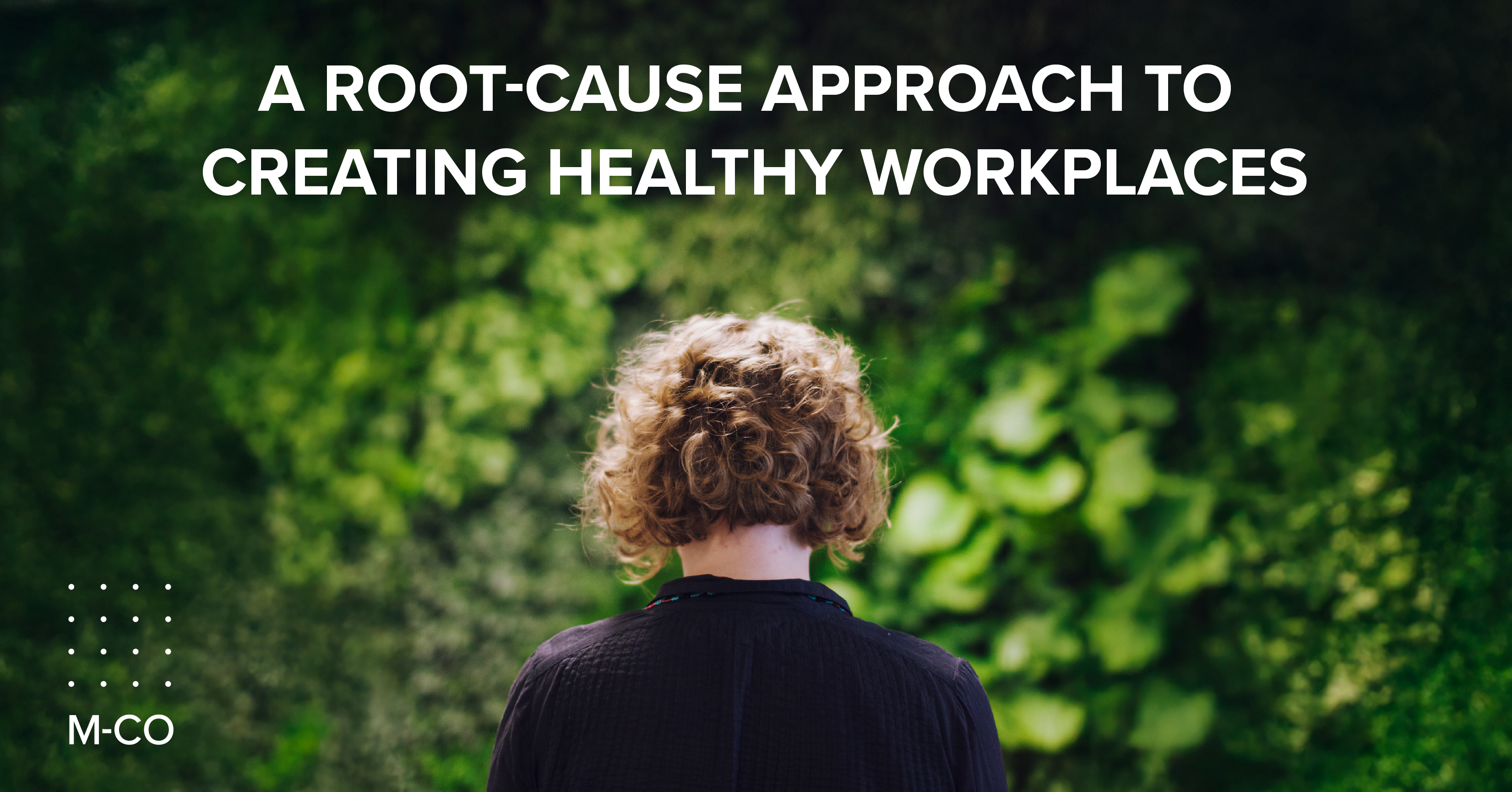“Engaged people are intrinsically motivated”
~Wilmar Schaufeli
Deeply caring for society is intrinsic to our work at M-CO. Our values are reflected in the clients we work with, and how we deliver the projects we collaborate with them on. We are motivated by a commitment to create vibrant societies.
The recent publication of J.R Ryan’s book, Make Work Healthy, provided a good opportunity to reflect on this values-led ethos in the expanding understanding of, and conversation around, National Workplace Wellbeing Day, April 30th, 2025.
IBEC is celebrating the 11th annual NWW Day this year, with a special focus on strategies that focus on the ‘whole person’. The growing evidence-base demonstrates how businesses have a direct influence on the health of employees across a range of markers (social, physical, mental etc).
This position is shared by John Ryan and Michael Burchell, co-authors of this book, that examines the ways in which organisations can create sustainable operating models for high-performing people.
Crucially, they contend that wellness programmes are not what makes workplaces healthy.
Instead, businesses need to reframe their approach by structuring efforts around a framework based on a salutogenic perspective (an emphasis on promoting healthy behaviours rather than preventing disease), a holistic understanding of workplace health, and strategies built on data, directed by C-suite leadership.
Work may be, at its most basic, an exchange of resources (time for money), but the interactions required to guarantee a successful balance between them, are more complex.
In Ryan and Burchell’s model, informed by their work and research, the workplace is viewed as an energy management system – where organisations are seen as complex systems in which a transfer of energy occurs to achieve a shared outcome.
Leaders in this space are defined as ‘energy managers’. It’s through this lens, and reflecting the IBEC ‘whole person’ model, that workplace wellbeing can be rediscovered.
In this shift away from finding solutions to individual ‘problems’ to creating highly congruent places to work, businesses are asked to take a pragmatic approach to addressing the root causes of unhealthy behaviours, enabling them to become truly salutogenic places to work.
Refocusing this conversation with the aid of multiple case studies, vignettes and research, Ryan and Burchell demonstrate the ways in which organisations that intentionally curate teams and deliver on their business objectives through human-centric energy management models achieve a genuinely healthier workplace culture than places where wellness campaigns or gimmick initiatives are standard practice.
Definition
Step one in this process is developing a new definition of healthy workplaces to include purpose, alignment, demands, organisational design and relationships with relevant metrics to evaluate them.
In taking this forward we uncouple ourselves from trying to find the solutions to symptoms that represent more fundamental underlying challenges, preventing optimum performance. Values – as reflected in the company culture, play a key role at this stage.
At M-CO, our company values aren’t on the wall, they are mirrored in the high levels of alignment between the team and work we do on the causes we care about.
Data-driven
One point the authors, and those experts they interviewed for the book cite repeatedly, is the importance of data to inform affective decision making, particularly in terms of health metrics.
Our ongoing work at M-CO with an expanded ISO Accreditation, and new venture with the B-Corporation Process, speaks to this understanding.
Illustrating impact is how we win new work, so increasing our efforts to collect data on a range of new metrics, specifically around the factors noted above, despite the inevitable challenges that come with self-reflection, is the logical next step if we want to continue to live our values as a company.
We know there is work to be done to strategically inform how we work as a team with our clients.
Integration
It is always easier to find solutions to other people’s challenges, but clients need to see us do as we say and then talk about how it might work in their organisations.
Adopting expanded frameworks, such as the ones described in Ryan and Burchell’s book, and through our efforts in the B-Corp certification process, as well as our past efforts utilising the WELL Principles are what help drive meaningful change – even when it’s uncomfortable.
Leading where you are means organisations making a collective effort at every level to adopt practices that reflect their values and promote healthy ways of working.
At M-CO we know this means greater flexibility, celebrating difference and personal endeavours, as well as modelling rest and play as part of the work energy cycle.
While there is always value in planning healthy interventions that deliver against specific needs, we need to look first at what really makes a healthy workplace.
It’s not office-space gimmicks or even well-meaning wellness programmes, the data tell us: it’s consistent values-based decision making for the business, in collaboration with a team who is aligned and supported to deliver meaningful objectives.
Angel is an Associate Director at M-CO, with a deep interest in the effect of the physical and social environment on health outcomes.

